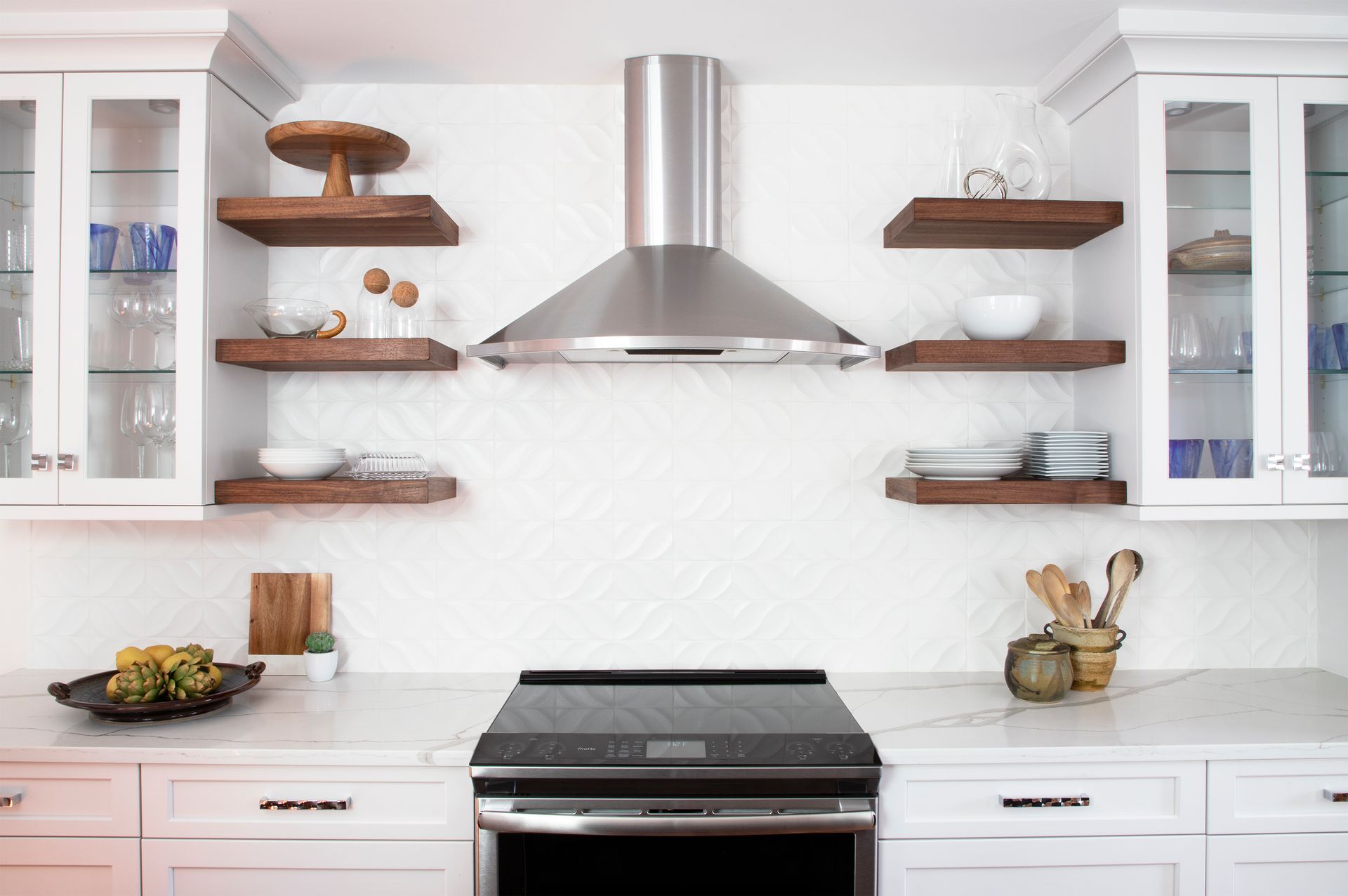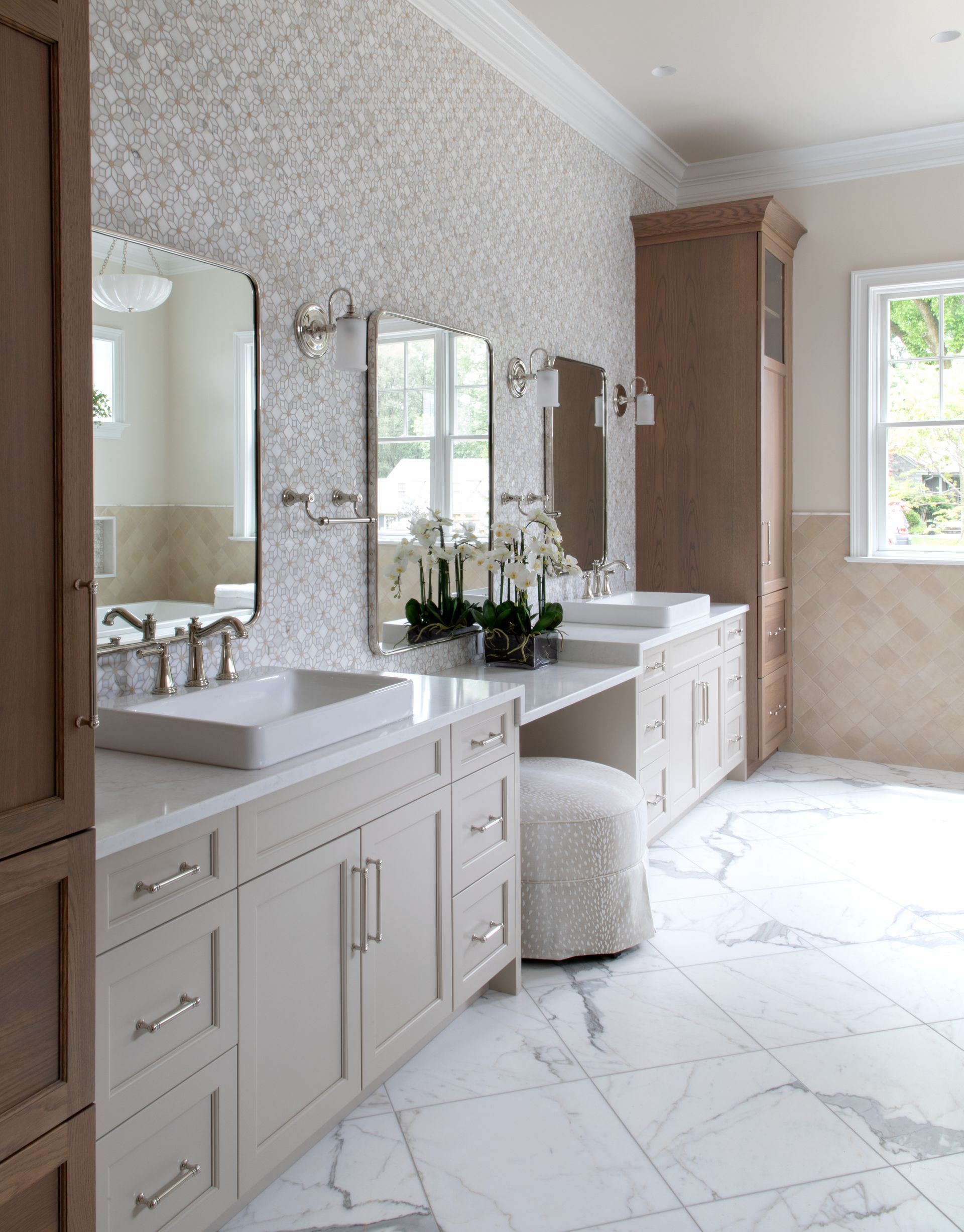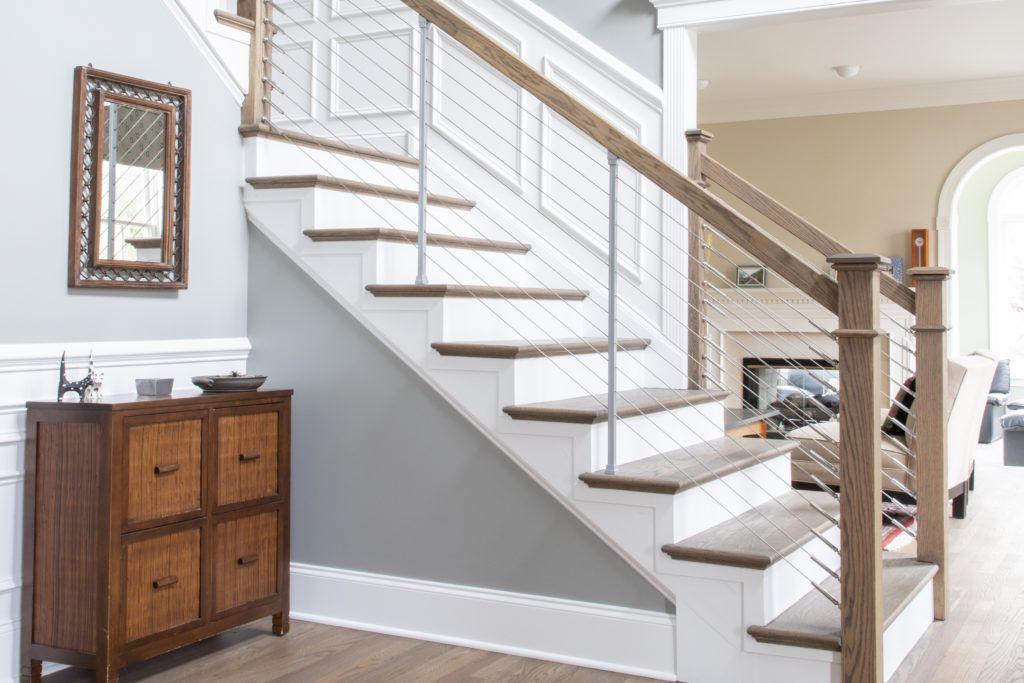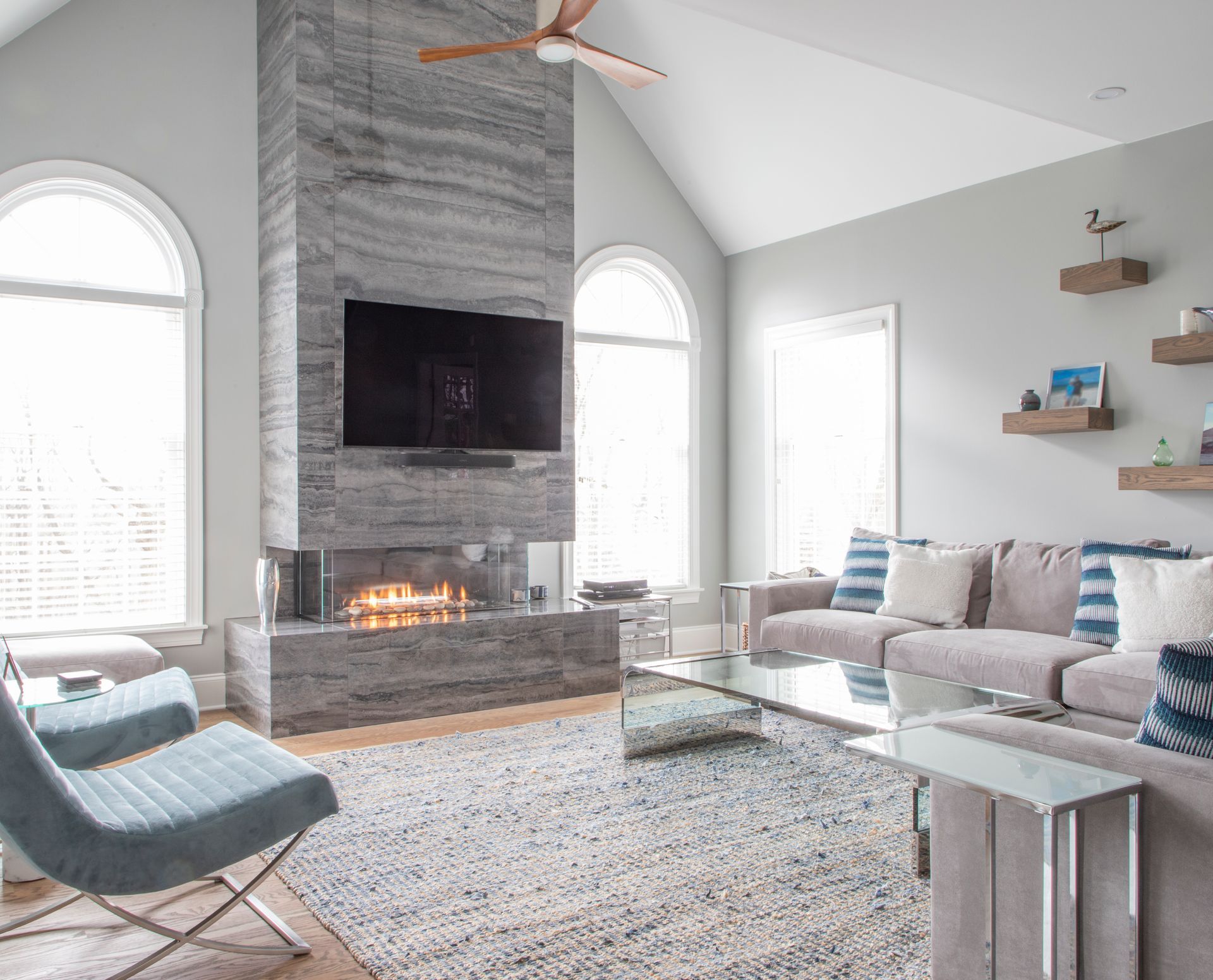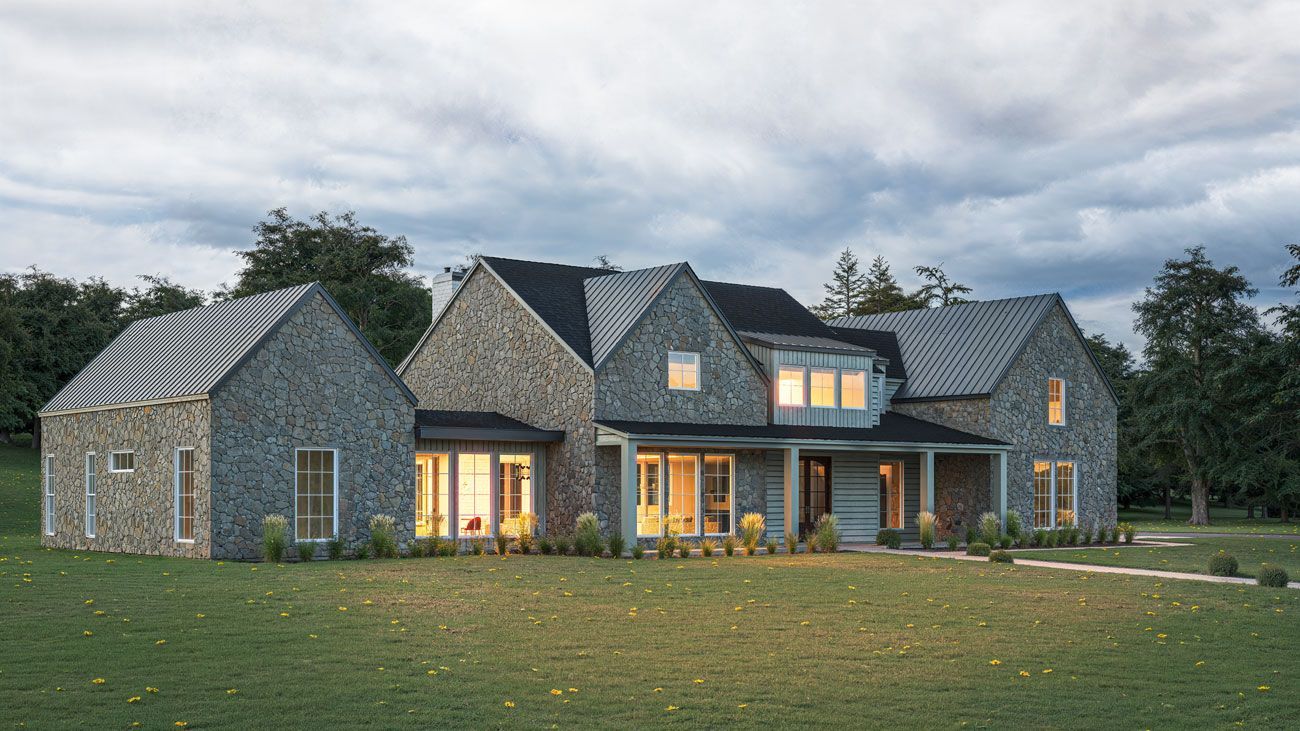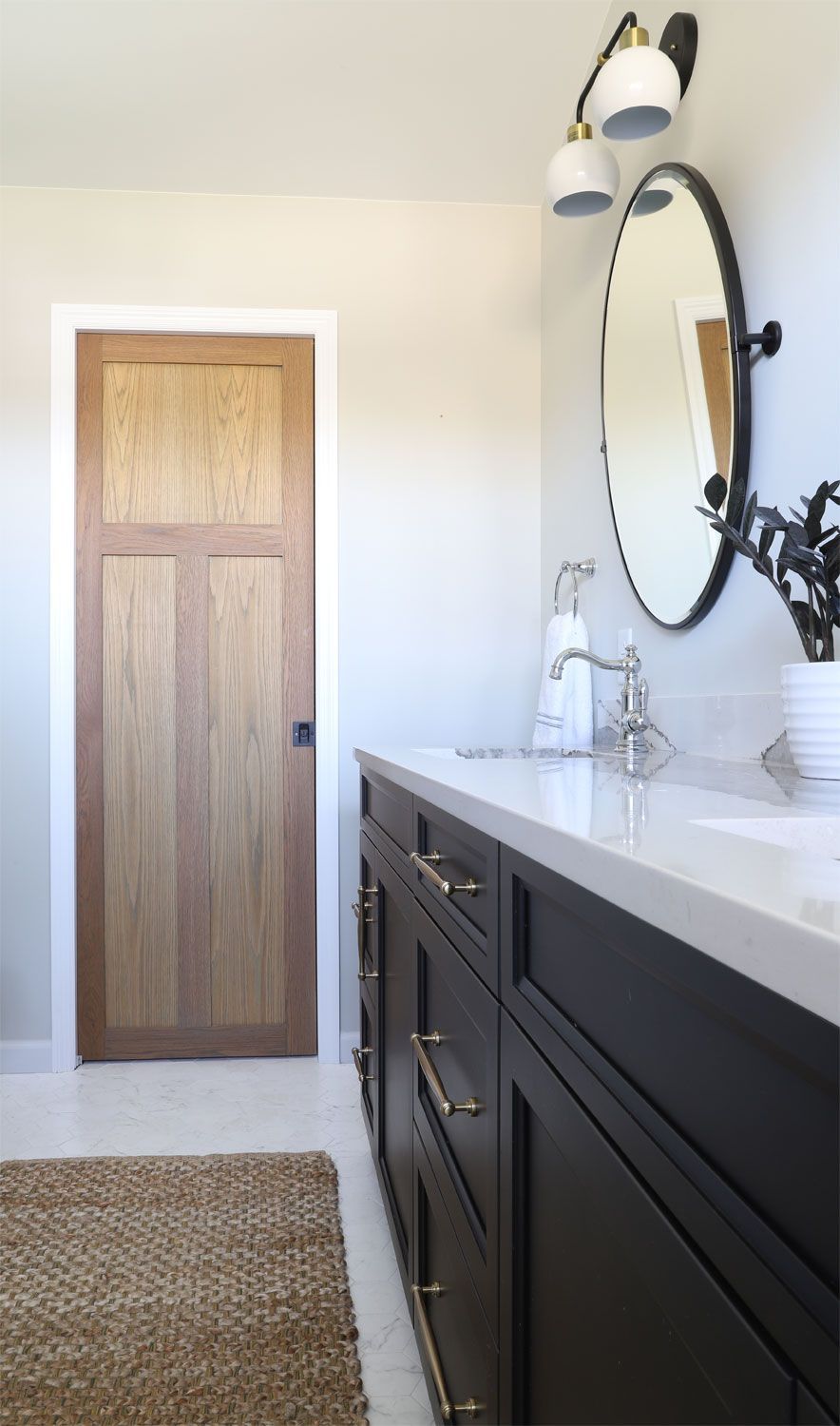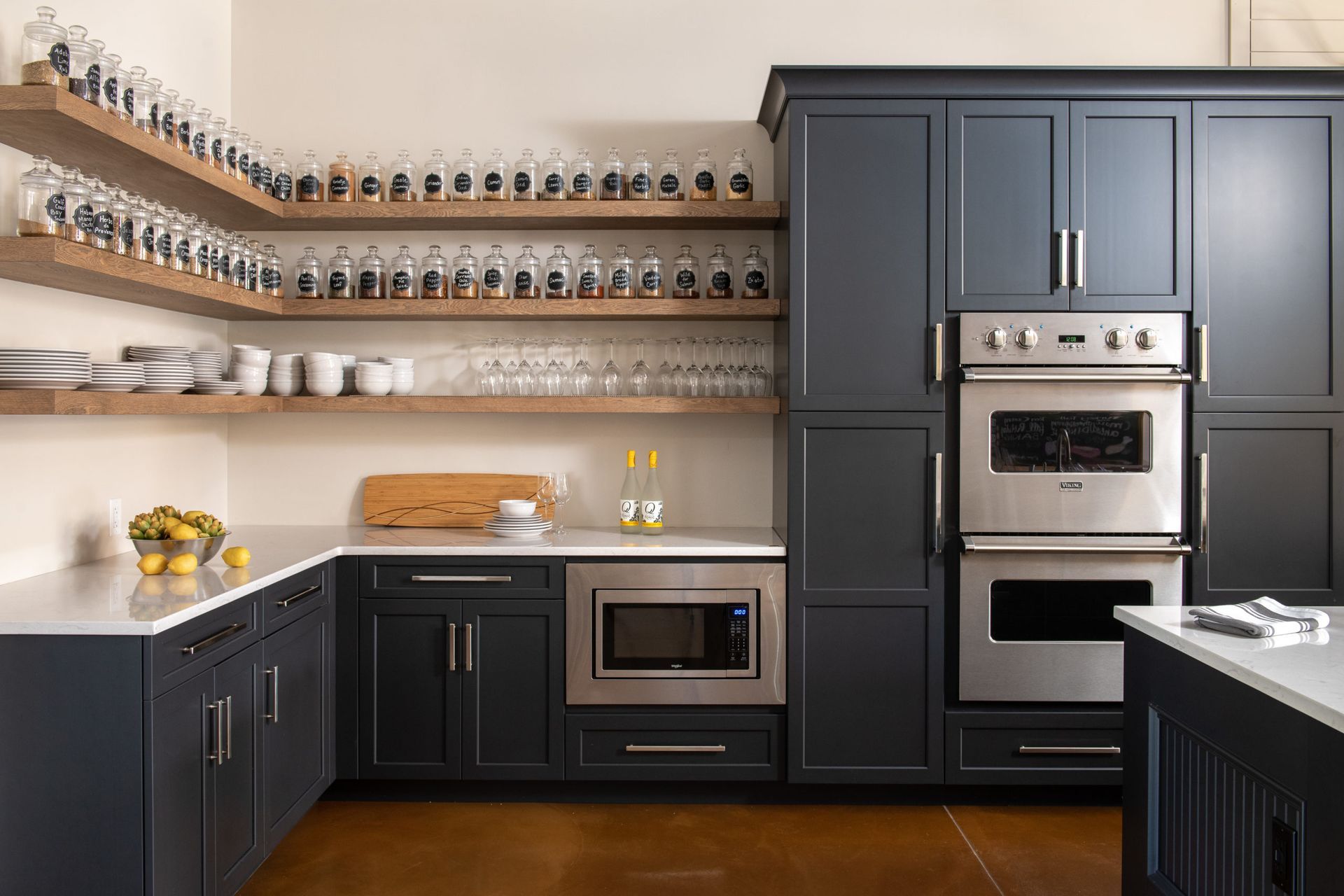Quartz vs. Granite: What is the Best Countertop Material?
This blog was updated April 7th 2025.
As designers, one of our favorite aspects of our job is introducing our clients to various materials that will create the dream space they envision. There are thousands of paint colors, hundreds of cabinet door styles, and dozens of countertop options.
Quartz and granite are the two most popular surface materials for countertops, but what are the pros and cons of granite and quartz countertops? And when it comes to your kitchen or bathroom, which material is best?
Introduction to Countertop Materials
When it comes to choosing the perfect countertop for your kitchen or bathroom, there are numerous options available. Countertop materials can greatly impact the aesthetic and functionality of your space, making it essential to select the right one for your needs. In this section, we will delve into the world of countertop materials, exploring the various types, their characteristics, and what to consider when making your decision.
Overview of Popular Countertop Materials
Countertop materials can be broadly categorized into natural stones, engineered stones, and synthetic materials. Natural stones, such as granite, marble, and quartzite, are quarried from the earth and offer unique patterns and colors. Engineered stones, like quartz, are manufactured by combining natural materials with resins and pigments. Synthetic materials, including laminate and solid surface, are made from a combination of natural and artificial components. Each category has its own set of characteristics, benefits, and drawbacks, making it important to understand the differences when choosing the right countertop material for your home.
Importance of Choosing the Right Countertop Material
Selecting the right countertop material is crucial for several reasons. Firstly, it can significantly impact the overall look and feel of your space. Different materials offer distinct styles, from the elegance of marble to the modernity of quartz. Secondly, countertop materials vary in terms of durability, maintenance, and cost. For instance, granite is highly durable but requires periodic sealing, while quartz is low-maintenance but may be more expensive. Lastly, the right countertop material can also affect the resale value of your property. A well-chosen countertop can enhance the appeal of your home, making it more attractive to potential buyers.
Types of Kitchen Countertop Materials
When looking at countertop materials, the possibilities are nearly endless.
- Laminate
- Wood/butcher block
- Marble
- Stainless steel
- Glass
- Concrete
- Soapstone
Laminate countertops are also a popular choice for those seeking a budget-friendly option without compromising on style.
Over the years, as countertops have evolved to become more functional, durable, and beautiful, two materials have emerged as timeless favorites: quartz and granite.
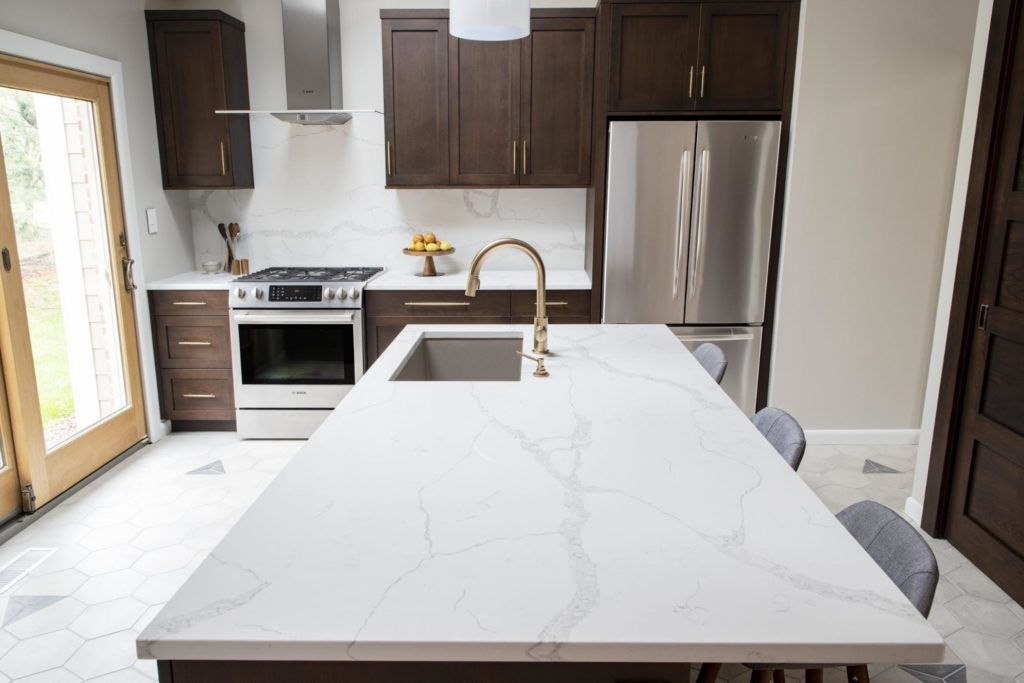
What is Quartz?
Quartz is a man-made product consisting of crushed quartz crystals, natural quartz, small pieces of glass, and sometimes metallic or sparkly flecks. It is non-porous, which helps prevent bacterial growth in high-traffic areas like kitchens and bathrooms. Since quartz is man-made, manufacturers can create beautiful pieces with unique color variations and veining.
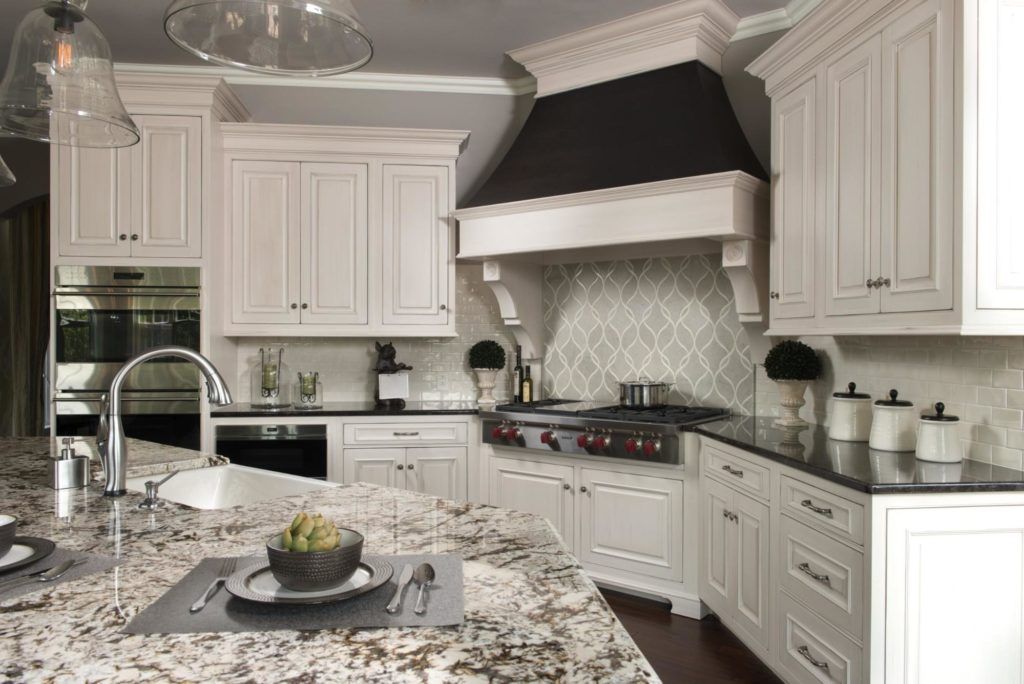
What is Granite?
Granite is a purely natural stone that is mined from the Earth, largely in South America. Unlike quartz, granite is much more porous and requires sealing to avoid water damage and staining.
Granite is widely used in kitchens and bathrooms and is very durable. It features unique color profiles that make it very desirable for many homeowners.
Quartz vs. Granite : Which Surface Is Best?
To answer one of the most popular questions in the industry, here are key features that distinguish the two countertops. Engineered stone countertops, such as those made from quartz, offer a non-porous surface that is resistant to staining and requires less maintenance compared to natural stone.
Cleaning
When it comes to cleaning, both quartz and granite countertops can be wiped down easily with warm water and a non-acidic soap. But, since granite surfaces are porous, they must be sealed every 1-2 years. Be sure to ask your contractor if your countertops were sealed before installation (most are), or if you’ll need to seal them before using them. This is one of the biggest disadvantages of granite in the quartz vs. granite debate.
Durability
Quartz and granite are both quite durable. Quartz countertops, made from engineered stone, are manufactured to be extremely strong and long-lasting, while granite is naturally one of the strongest stones on earth. While granite may hold up slightly better to heat and abrasion, we never suggest cutting or setting hot items directly on either surface. Your countertops are an investment, and while they should be highly-functional, you also need to take good care of them to maximize their life by using cutting boards and trivets.
Style
In the quartz vs. granite debate, style is one of the biggest deciding factors, as the two stones have very different visual appearances. Depending on the homeowner’s style and the existing color scheme and architecture of the space, one stone may be more suitable than the other.
Granite slabs are one-of-a-kind and have a variegated, speckled appearance with plenty of visual movement. Each granite slab is distinct in mineral pattern and color, contributing to its uniqueness in countertop design. There are also a number of treatments that fabricators can apply to produce a variety of looks with the same slab of granite. Granite countertops come in all sorts of colors including grey, brown, blue, green, and black.
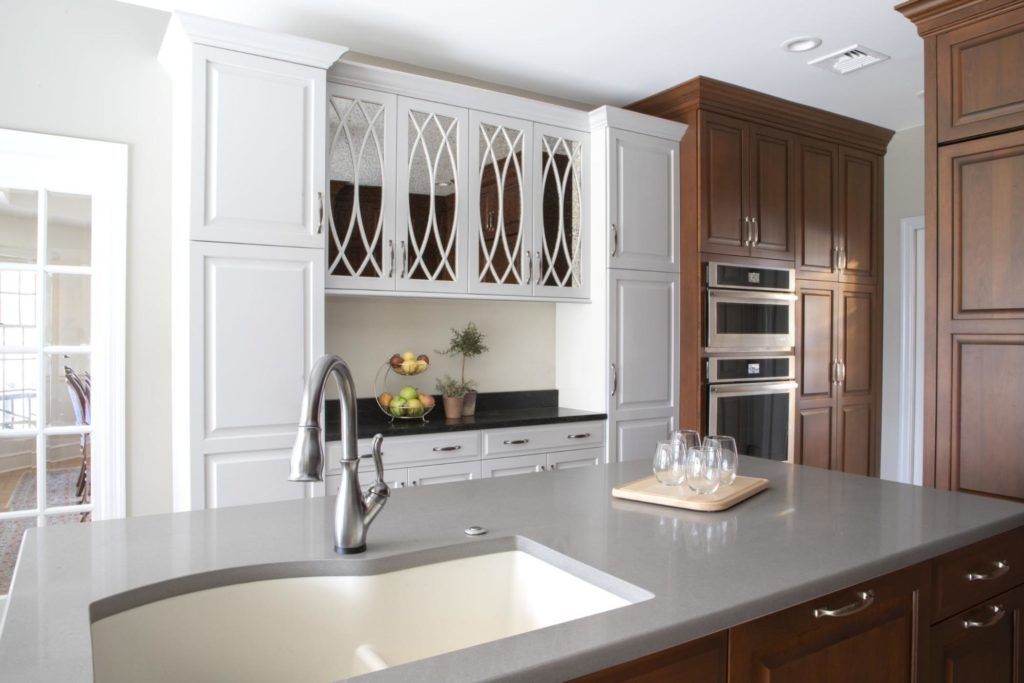
Quartz is also available in hundreds of colors and patterns, but the slabs are typically more subtle and more consistent. Since they are man-made, the slabs are easily replicated if you need more for an extension or additional renovation down the line. Quartz countertop colors include grey, brown, blue, green, black, and even pure white (which can be difficult to find at a granite yard). Quartz has grown in popularity in recent years since it is able to mimic the look of trendy veined marble without the upkeep and maintenance that marble requires.
Price Comparison
For many homeowners, price is a major factor when selecting a countertop material. Due to the natural origin and maintenance required for granite countertops, they are often slightly less expensive per square foot than quartz countertops. However, you’re more likely to see a price difference based on the quality of the surface you choose, rather than the material of quartz vs. granite.
Heat Resistance and Safety
When it comes to heat resistance, granite is generally considered the safer option. Granite countertops can withstand high temperatures, making them ideal for kitchens with busy cooking areas. However, it’s essential to note that even granite can be damaged by extreme heat, so it’s still important to use trivets and pot holders.
Heat Resistance of Granite Countertops
Granite countertops are highly resistant to heat due to their natural composition. They can withstand temperatures of up to 500°F (260°C) without sustaining damage. However, it’s crucial to remember that granite is not completely heat-proof, and prolonged exposure to high temperatures can cause damage. To ensure the longevity of your granite countertops, it’s recommended to use trivets and pot holders to distribute heat evenly.
In contrast, quartz countertops are more prone to heat damage. While they can withstand moderate temperatures, exposure to extreme heat can cause discoloration, cracking, or even melting of the resin. To avoid damage, it’s essential to use trivets and pot holders when placing hot cookware on quartz countertops.
Ultimately, the choice between quartz and granite countertops depends on your specific needs and preferences. If you prioritize heat resistance and safety, granite may be the better option. However, if you prefer a low-maintenance surface with a wide range of design possibilities, quartz could be the way to go.
Conclusion
At the end of the day, the difference between quartz and granite lies in your personal tastes and needs. Both will give you a massive range of color and pattern options for your home. Quartz counters are known for their low maintenance and consistent appearance, making them a popular choice for modern kitchens and bathrooms. Plus, with a little TLC, both quartz and granite will still look beautiful even after years of use.

